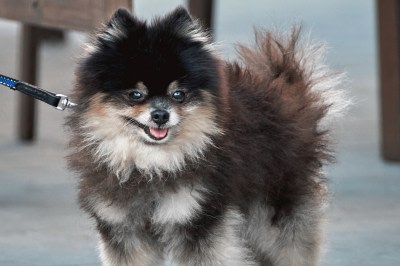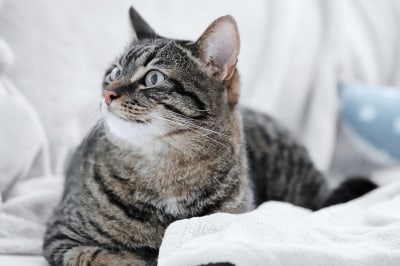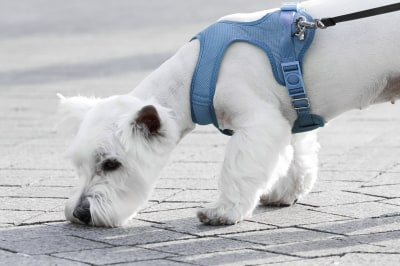
Parvovirus is a serious and highly contagious virus that can severely impact a dog's gastrointestinal symptom. Here, our Oklahoma City vets share how parvovirus is spread, its symptoms, and how you can prevent your dog from getting it.
How is canine parvovirus spread?
Parvovirus is a highly contagious and dangerous virus that, when contracted by dogs, can lead to severe gastrointestinal health issues.
The virus is spread through traces of feces from infected dogs. Dogs are able to spread this infectious virus in the days before they exhibit symptoms, as well as if they have recently recovered. Asymptomatic infection is possible and even dogs who do not display symptoms can still pass along the virus.
How does parvovirus attack your dog's body?
Parvovirus attacks a dog's stomach and small intestines. The virus destroys a dog's gut barrier by attacking healthy cells and blocking the absorption of essential nutrients.
In puppies, parvo also attacks the bone marrow and lymphopoietic tissues which play essential roles in your dog's immune system. It can sometimes affect the heart as well.
Why are puppies susceptible to parvo?
If the mother is fully vaccinated against parvovirus the puppies will inherit antibodies from the mother and will have parvovirus immunity for about the first 6 weeks of their lives.
However, as the puppies begin to wean, their immune systems weaken and the young pups become susceptible to the disease.
This is why vets urge pet parents to begin vaccinating their puppy against parvo at 6 weeks old when the antibodies from their mother are no longer available to protect them.
It isn't until a young dog has received all 3 of the recommended parvovirus vaccines that they will be protected against the disease. It is during the gap between weaning and full vaccination that puppies are most likely to catch parvovirus.
What are the symptoms of parvovirus in a dog?
It is essential to understand that once your dog begins showing symptoms they are already very ill. If you notice that your dog is displaying any of the following symptoms contact your vet immediately:
- Weakness
- Dehydration
- Depression
- Bloody diarrhea
- Vomiting
- Fever
- Lethargy
- Loss of Appetite
- Weight loss
Treatment for Parvovirus in Dogs
Your veterinarian can offer supportive treatments to help treat symptoms of parvovirus, but there is no known cure.
If your four-legged friend is being treated by a veterinarian and survives the first four days after symptoms appear, there is a good chance that your pup will recover from the disease. It typically takes about a week for dogs to recover from Parvo.
If your dog is diagnosed with canine parvovirus it is essential to take steps to isolate your dog from other animals and always wash your hands thoroughly after being near your dog.
How can I prevent parvo?
The key defense against parvovirus is vaccination. Before your puppy is vaccinated against parvovirus, you should refrain from letting them socialize with other dogs as they are at greater risk of infection.
Be sure to follow your vet's advice and have your dog vaccinated against parvo, rabies, and other potentially serious conditions based on the suggested vaccination schedule for your area.



